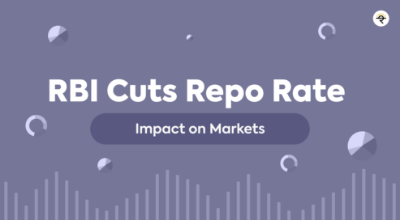Market Overview
Indian stock markets reacted to the Reserve Bank of India’s (RBI) latest monetary policy decision, which saw the central bank reduce the repo rate by 25 basis points to 6.25%. This move comes amid a bid to boost economic growth and provide liquidity support to the financial system. The markets showed mixed reactions, with banking and real estate sectors witnessing gains, while some defensive sectors remained subdued.
News Breakdown
The RBI's Monetary Policy Committee (MPC) voted to lower the repo rate, the rate at which the central bank lends to commercial banks. The decision was influenced by factors such as controlled inflation, the need to stimulate economic activity, and global economic uncertainties. This is a first in 5 years, signaling the RBI’s focus on supporting economic expansion while keeping inflation in check.
Impact Analysis
The rate cut is expected to have broad implications across various sectors of the Indian economy:
- Banking & Financials: NBFCs benefit from improved liquidity, making credit cheaper. Small finance banks may see increased demand due to their focus on unsecured lending, while large private banks are expected to remain stable and prioritize balance sheet strength.
- Real Estate: With reduced home loan rates, the sector could see improved demand as homebuyers find financing more affordable.
- Automobile Industry: Lower loan rates could encourage consumer spending on vehicles, positively impacting auto sales.
- Consumer Spending: A reduced repo rate often translates into increased disposable income, leading to a potential uptick in retail and consumer goods sectors
While the repo rate cut is a positive signal for economic growth, investors should be mindful of external factors such as global inflation trends, geopolitical developments, and future RBI policy actions. Market volatility could persist as investors assess the long-term implications of this rate adjustment.



